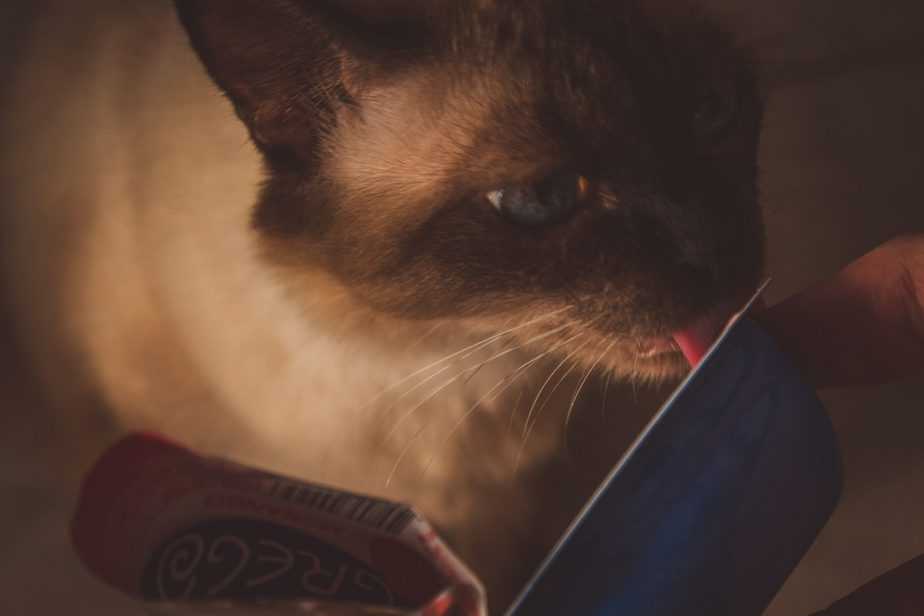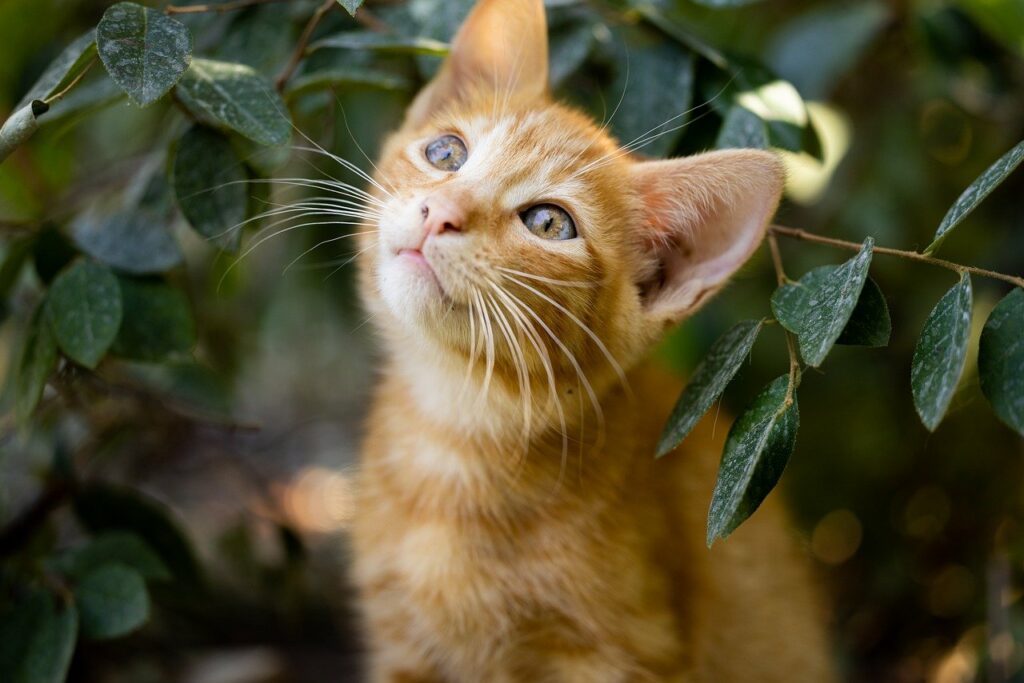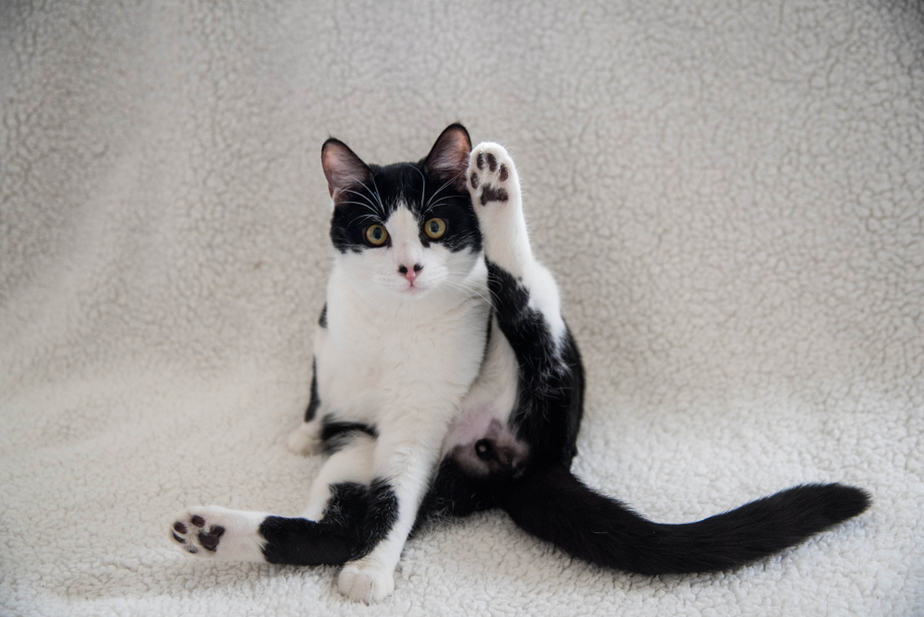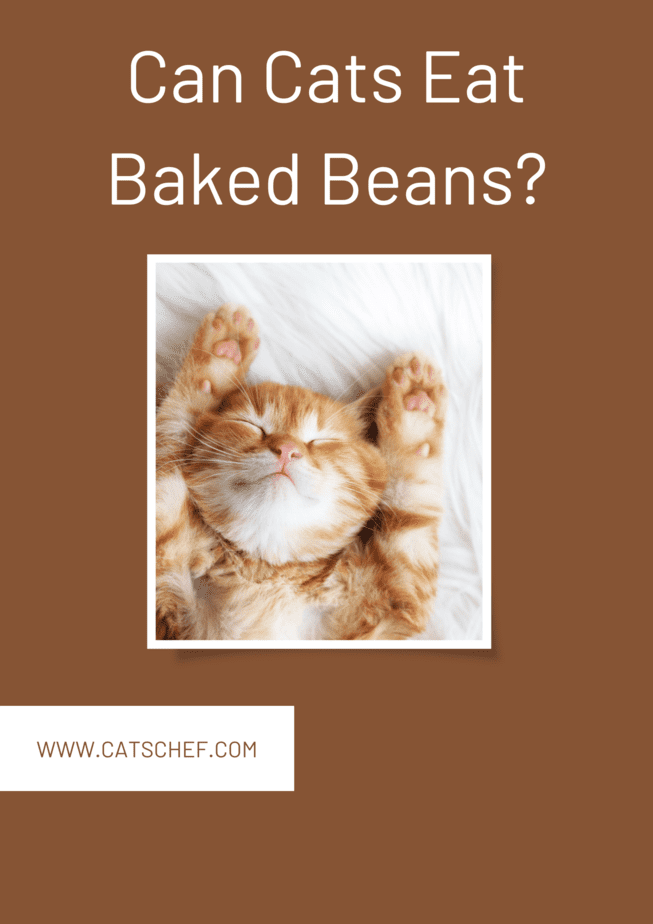📖 Table of Content:
Cats absolutely adore wet food. They get so excited when they hear anything resembling the sound of plastic ripping or a can being opened. Even when they see you opening a can of baked beans (definitely not cat food) they still meow at you demanding to be fed. But can cats eat baked beans?
Think about it – it would make feeding so much easier if you could simply share breakfast with your favorite fluffy monster. The best “two for one” situation you can think about.
Maybe you’ve heard that beans are a popular delicacy among the feline population. Cats seem to enjoy them greatly as they remind them of their favorite moist sustenance. Luckily for them, beans are completely safe for cats and are rich in plant protein.
But, what about baked beans? They usually contain other ingredients, and you might be wondering if you should be more careful when stacking up on those convenient cans. You don’t want your cat to eat anything that might harm her!
Can cats eat baked beans?
Cats can’t eat baked beans – and it’s not the bean’s fault. Beans aren’t toxic to cats, they’re packed with vitamins and minerals, and they offer a great amount of plant protein. However, baked beans are normally prepared with ingredients that might be harmful to your cat.
They are a combination of white beans and a sweet sauce. The sauce is normally made with tomato, red peppers, onions, garlic, and other spices. Since they’re canned and ready to be eaten, they often contain a bunch of sweeteners and preservatives.
If you want to share breakfast with your feline friend, homemade baked beans might be a better choice for you. You can control what you put in them, and you can use fresh ingredients that will be especially beneficial to your cat’s health.
On the other hand, your furry monster might be intrigued by your exceptional canned beans collection. If you’re not careful, your cat will make you spill the beans whether you want to or not.
So, make sure to be prepared and learn about the risks and benefits of baked beans.
Risks vs. benefits
Cats shouldn’t eat baked beans because there are too many risks involved. Not only are they too salty, but they can also contain onion and garlic which are extremely toxic to cats. We can’t forget about different sweeteners and preservatives used in canned baked beans, either!
Too much salt can make your cat sick and cause different digestive issues, excessive thirst, vomiting, and diarrhea. Electrolytes in your cat’s body become unbalanced, which results in improper cell function.
Onion and garlic are extremely toxic to cats and you should avoid them at all costs! They’re dangerous in all forms, even as dry spices.
If your cat ate anything containing onion and garlic, she could experience food poisoning, which would result in an array of uncomfortable and dangerous symptoms.
Canned baked beans are definitely your cat’s biggest enemy. They often contain Xylitol, the most common food sweetener, which is toxic to cats. If your cat ate canned foods containing this substance, she would need emergency care as she’d be at the risk of hypoglycemia and/or pancreatitis.
Baked beans often contain these ingredients, which is a shame, because your cat wouldn’t appreciate getting sick because you forgot to check the label. Obviously, if you choose to make some homemade baked beans you can tweak the recipe to fit your cat’s needs.
Pretty much the only benefit baked beans contain – are the actual white beans. They are safe for cats, and they contain a lot of plant-based protein, vitamins, and minerals. Cats are carnivores so plant-based protein isn’t necessary for their diet, but your cat could still benefit from eating an occasional bean treat.
To bean or not to bean?
Cats can’t eat baked beans. The risks outweigh the benefits – no matter how excited your cat gets seeing you open a can of baked beans. They might be an excellent choice for you, but there are better options for your cat.
Baked beans usually contain condiments that might harm your cat, while canned baked beans always come with a bunch of dangerous sweeteners and preservatives. You know very well how sensitive your cat’s stomach can get, so it’s best to avoid anything that might trigger a negative reaction.
If your feline friend looks at your last can of baked beans as if saying ‘Where have you bean all my life?’, you can always prepare some homemade beans in your kitchen. Make sure to clean them properly, cook them with no salt and other seasonings, and serve them alongside some animal protein.
Lastly, always consult your vet before making any changes to your cat’s diet. If you’re not sure how to enhance your cat’s daily menu, your vet will provide you with some valuable insight. You can always throw in a boiled bean or two in the mix, just to see your precious purr machine happy!
Related post: Can Cats Eat Beans? All You Need To Know!



